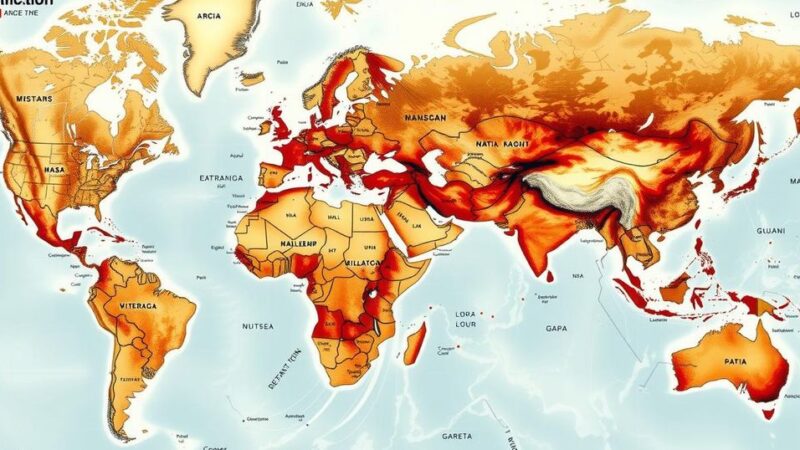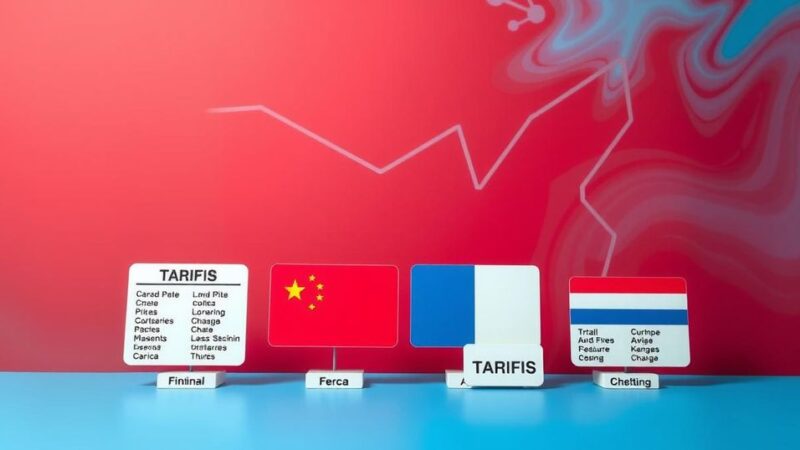President Trump’s draft travel ban list includes Bhutan, categorizing it as a ‘red’ nation, sparking confusion given Bhutan’s reputation for prioritizing happiness. Despite a low visa overstay rate, concerns about irregular migration may have driven this decision. The inclusion also reflects Bhutan’s complex history and governance, highlighting the broader implications of travel restrictions on nations committed to cultural integrity and sustainability.
In an unfolding development, President Trump’s administration is reportedly circulating a draft travel ban list, which categorizes nations by threat levels. Among these, Bhutan has emerged as a perplexing inclusion—designated within the ‘red’ category, thereby signaling an automatic travel ban for its citizens. While the red list generally features nations like Afghanistan and Syria, historically marked by strained diplomatic relations, Bhutan’s presence invites scrutiny due to its unique identity as a nation prioritizing happiness over economic metrics.
Bhutan, known for its Gross National Happiness policy and esteemed for its commitment to environmental sustainability, contrasts sharply with nations typically associated with security risks. With a small population of approximately 800,000 and a pristine ecological record, Bhutan’s socio-political fabric has revolved around maintaining cultural heritage and mitigating external influences. For decades, the country has enforced strict tourism regulations and control over media, exemplified by the late introduction of television and internet.
However, Bhutan’s historical approach to cultural preservation, particularly the implementation of the ‘One Nation, One People’ policy in the 1980s, led to significant humanitarian concerns. This policy prompted the marginalization of non-Buddhist communities, resulting in widespread civil displacement and refugee crises, with many fleeing to the U.S., notably Ohio. This aspect of Bhutan’s history may juxtapose its serene image with the complexities of its governance and societal policies.
Despite concerns of Bhutanese overstaying U.S. visas, statistics indicate that only a small number—23 individuals—have overstayed out of potential visitors. Comparatively, nations with significantly larger populations exhibit far greater numbers of overstays, raising questions about the rationale behind Bhutan’s classification as a ‘red’ nation. This inconsistency suggests that fear of irregular migration has spurred the travel restriction, even without substantial evidence of a widespread issue.
Former Bhutanese politician Karma Loday expressed deep concern regarding the implications of being placed on the ‘red list,’ arguing that Bhutan, unlike nations historically linked to terrorism, lacks any military capacity or intent to commit acts against the U.S. This sentiment has been a recurring theme, reflecting the delicate and often misunderstood nature of Bhutan’s identity within international contexts regarding immigration policy.
Overall, the surprising categorization of Bhutan alongside nations embroiled in conflict raises essential discussions about immigration policy, security assessments, and the broader implications for nations dedicated to maintaining cultural integrity and happiness in their governance. The case of Bhutan serves as a reminder of the complexities woven into the fabric of global travel and relationships.
In conclusion, the perplexing inclusion of Bhutan on Trump’s draft travel ban list raises significant questions regarding immigration policy and the criteria used to assess national security risks. Bhutan, a nation celebrated for its happiness and sustainability, contrasts starkly with typical ‘red list’ countries, thereby underlining the complexities of international relations. The historical context surrounding Bhutan’s cultural policies and the relatively minor nature of visa overstays further complicate its designation, calling for a reevaluation of how such lists are constructed and the narratives they perpetuate.
Original Source: www.independent.co.uk






